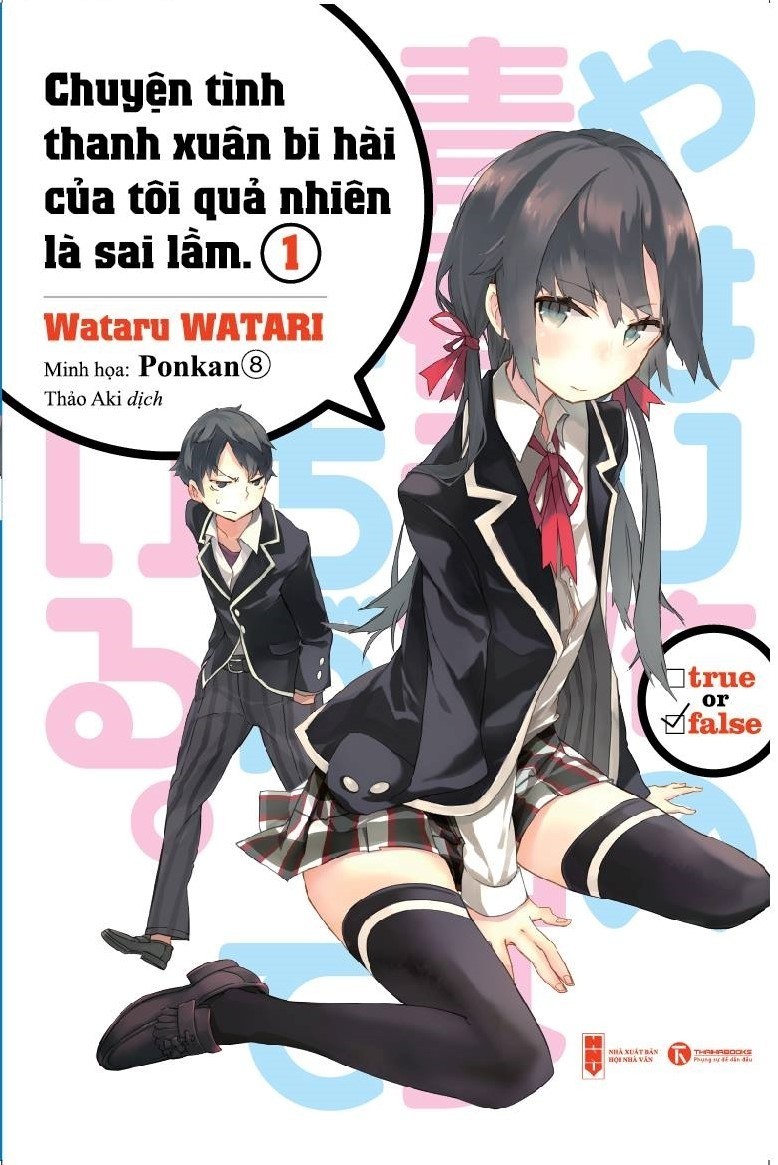What do you think?
Rate this book


450 pages, Paperback
First published March 18, 2011
"Of course I hate stuff like in-crowds and in-jokes. Oh, I like in-fighting, though. Because I'm never part of the 'in.'" (142)Being the first volume of the series, a good deal of the novel is spent establishing characters and their difficulties with relationships—friendly or romantic. Hikigaya is the quintessential outsider who takes pride in his loner status, though it does seem this is a behavior he has accepted rather than explicitly chosen. Yukino Yukinoshita plays the opposite side of the same coin; she is beautiful and aggressively intelligent, truly "snow beneath the snow" in the sense that she is untouchable. Compounded by her unwavering convictions and direct language, Yukino is just as alone as Hiki—though this is from the perspective of the pedestal those around her obligatorily place her on. Bridging the gap between the two is Yui Yuigahama, their total foil. She is energetic, outgoing, and compelled to please people; in other words, she is capable of conforming to social norms and fitting in.